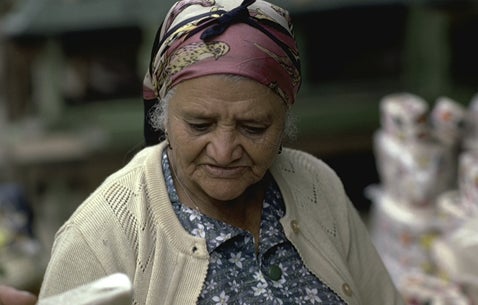On World Mental Health Day, PAHO/WHO urges support for community- and family-based senior care
Washington, D.C., 10 October 2013 (PAHO/WHO) — An estimated 15% of adults over 60 suffer from mental illness, and depression and dementia are the most common forms of mental illness among seniors. On World Mental Health Day, the Pan American Health Organization/World Health Organization (PAHO/WHO) is calling for more community-based programs and more training for family members who provide care for seniors with mental health problems.

World Mental Health Day is observed each year on Oct. 10 to raise public awareness of mental health issues. This year's campaign focuses on mental health and older adults. In the Americas, some 100 million people are over 60 (data for 2006), and their numbers are expected to double by 2020.
Globally, an estimated 7% of seniors suffer from depression, and 5% suffer from dementia. These are followed by anxiety (3.8%) and problems related to substance abuse (nearly 1%). About one in four deaths in this age group are from suicide.
PAHO Director Carissa F. Etienne said there has been "important progress" in the Americas in the area of mental health over the past 25 years. "Our countries have progressively moved from the old asylum model to a new community-based model that fully respects the human rights of people with mental health problems and that provides decentralized services on an outpatient basis, integrated into primary health care." She cited Belize, Brazil, Chile, Cuba and Panama as countries that have advanced in this regard.
Even so, an estimated 50% of seniors in psychiatric hospitals in the region remain hospitalized because there are no community-based treatment alternatives available to them. "We need to develop more community-based services to deal with these problems, and we need to train family members to be better able to help their loved ones who are in these situations," said Jorge Rodriguez, PAHO/WHO regional advisor on mental health.
Seniors themselves can protect and promote their own mental health by keeping physically and mentally active; maintaining ties with family, friends and their communities; and seeking medical care when needed. Mental disorders are treatable, and although there is no cure for dementia, treatment can help increase quality of life for seniors suffering from this disorder.
As part of its work promoting community-based treatment for mental disorders, PAHO/WHO is organizing a regional conference on involving mental health service users and their families in developing new models for psychiatric care, to be held on 15-17 October in Brasilia, Brazil. More than 100 users and family members from 20 countries are expected to attend.
Treatment and care strategies
Meeting the mental needs of older adults requires:
- Providing seniors with effective mental health care at the community level.
- Education, training and support for those who care for them at home.
- Training for all health personnel who deal with health problems related to aging.
- Create living conditions and environments that foster well-being and encourage people to adopt healthy lifestyles.
- Create legislative frameworks based on internationally accepted human rights standards to ensure high-quality services to people with mental illness and their caregivers.
PAHO, founded in 1902, is the oldest international public health organization in the world. It works with its member countries to improve the health and the quality of life of the people of the Americas. It serves as the Regional Office for the Americas of WHO and is part of the Inter-American system.
Links:



